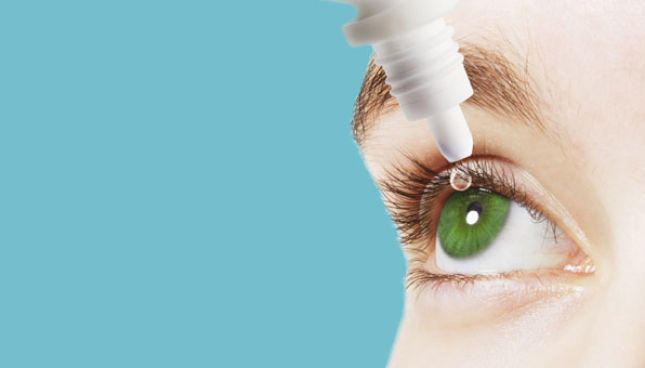All Categories
Featured

While many people recognize the value of protecting their skin from the sunlight, the hazardous results of ultraviolet (UV) rays on eye wellness usually go ignored. Extreme exposure to UV radiation can lead to a range of eye troubles, some of which can result in permanent damage. Whether you're taking in the sun on a summer day or strolling outdoors on a cloudy mid-day, protecting your eyes from UV rays is necessary. Here's what you require to find out about the impacts of UV radiation on your eyes and how to safeguard them.
What Are UV Rays? UV rays are a sort of electromagnetic radiation discharged by the sunlight. They are classified into three types:
UVA Rays: These pass through deep right into the skin and eyes and can add to lasting damage. UVB Rays: These rays are much more extreme than UVA and are mainly in charge of surface-level damage to the eyes and skin. UVC Rays: These are one of the most harmful however are mainly taken in by the Earth's ozone layer and don't commonly reach us. UVA and UVB rays are the main culprits behind eye-related damage.
Short-Term Effects of UV Direct Exposure on the Eyes. Also temporary direct exposure to extreme UV rays can damage your eyes. One common problem triggered by this is photokeratitis, or "sunburn of the eye." Signs and symptoms of photokeratitis include:
Excruciating, red eyes. Sensitivity to light. Tearing or too much watering. Short-term vision loss or blurry vision. Photokeratitis is generally short-lived, but it acts as a warning of just how damaging UV direct exposure can be, even in small doses.
Long-Term Effects of UV Exposure. Prolonged direct exposure to UV radiation can result in a lot more major and permanent eye problems, such as:
Cataracts: UV rays can increase the development of cataracts, a condition that triggers clouding of the eye's all-natural lens, leading to blurry vision and, if neglected, loss of sight.

Macular Deterioration: UV exposure can harm the retina, especially the macula, increasing the threat of age-related macular deterioration (AMD), which impacts central vision.
Pterygium: A growth of cells on the white part of the eye that can expand over the cornea, creating discomfort, redness, and vision troubles.
Pinguecula: UV exposure can cause yellow-colored down payments to base on the conjunctiva, bring about irritation and dryness.
Skin Cancer Around the Eyes: The delicate skin bordering your eyes is highly at risk to UV radiation, enhancing the danger of skin cancers like basic cell cancer and squamous cell cancer.
Exactly How to Protect Your Eyes from UV Rays. Protecting your eyes from UV rays is simple and calls for a few conscious behaviors:
Spend in Top Quality Shades: Select sunglasses that obstruct 100% of UVA and UVB rays. Look for tags that specify "UV 400" defense. Wrap-around styles are perfect as they obstruct UV rays from the sides as well.
Wear a Wide-Brimmed Hat: A hat with a brim at the very least 3 inches large can considerably lower UV direct exposure to your eyes and face.
Restriction Exposure During Top Hours: UV rays are strongest between 10 a.m. and 4 p.m. If you need to be outdoors throughout these hours, make sure you're sufficiently shielded.
Do Not Be Misleaded by Clouds: UV rays can penetrate with clouds, so it is very important to use sunglasses even on cloudy days.
Safeguard Your Eyes Year-Round: Snow, sand, and water can mirror UV rays, escalating their effects. Eye protection isn't just for bright summertime days-- ensure you're covered in all seasons.
Usage UV-Blocking Get In Touch With Lenses: Numerous call lenses now include UV defense. If you wear contacts, ask your optometrist about lenses with integrated UV filters for added defense.
Encourage Eye Security for Kid: Children's eyes are a lot more delicate to UV rays since their lenses are more clear, allowing more radiation to reach the retina. Make certain they use sunglasses and hats during exterior activities.
Regular Eye Tests. Normal examinations with an eye treatment expert are important for very early detection of any type of UV-related damage. An optometrist or eye doctor can evaluate your eyes, suggest safety procedures, and find conditions like cataracts or macular deterioration early on.
Verdict. UV rays posture a significant danger to eye wellness, and their effects can build up gradually. However, with the right precautions, you can minimize these threats and secure your vision. By using UV-blocking sunglasses, restricting sunlight direct exposure throughout top hours, and remaining constant with eye tests, you can guarantee your eyes stay healthy and your vision remains clear for many years to find. Safeguarding your eyes from UV radiation isn't simply regarding comfort-- it's a necessary action in protecting your long-lasting eye wellness.
Latest Posts
Trusted Expenses Door Solutions for Residences and Services
Discover WyHy FCU – Top Benefits for Your Financial Success
Explore Strathmere’s Coastal Treasure: Relax, Savor, and Stay at Deauville Inn